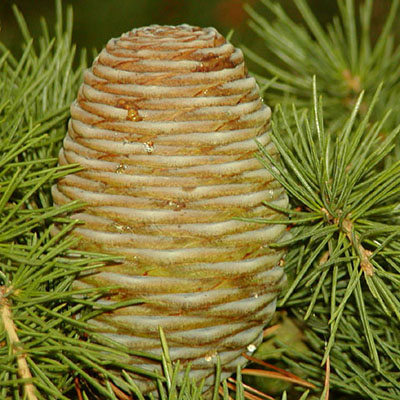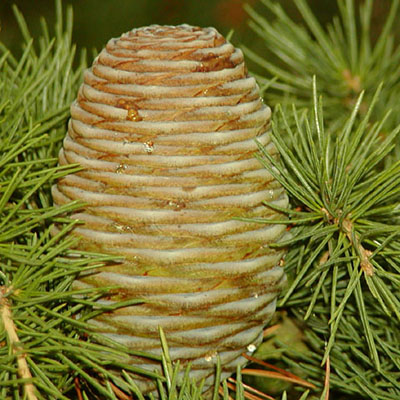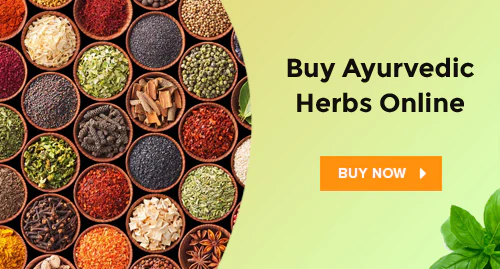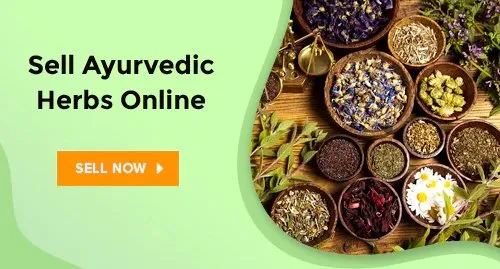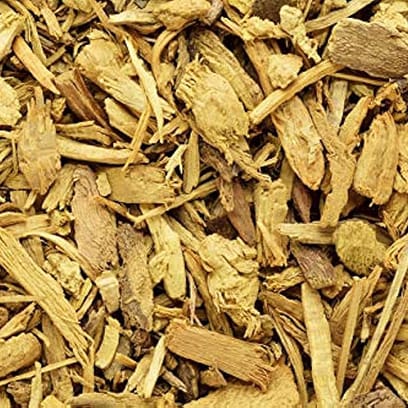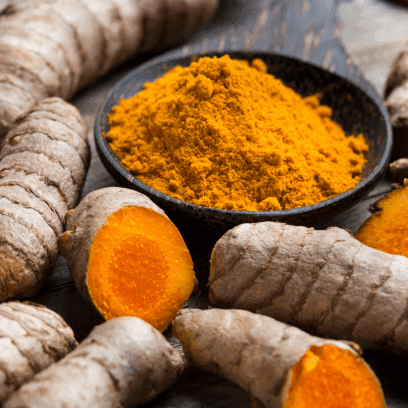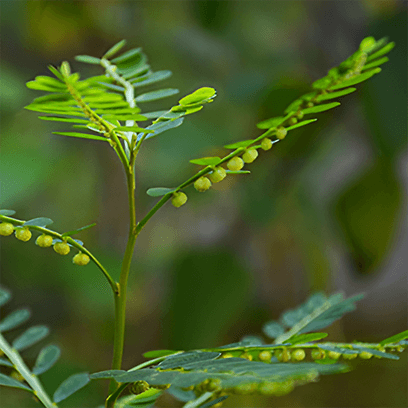On This Page
Devadaru- The tree of Gods
Introduction
Devataru or Devadaru, botanically known as Cedrus deodara belongs to the family Pinaceae. Devadaru is known as the tree of Gods, as Devataru were the favorite living places for Sages that are devotees of Lord Shiva. Devadaru is used since the Vedic period and in Atharva Veda, it is mentioned under the name Bhadra. Along with various medical uses, Devadaru is also used to construct the religious temple, for landscaping around the temples, and to make incense, and is the chief timber of Northwest India. In Ayurvedic classical texts, various uses of Devadaru have been mentioned. “Acharaya Charaka ” the father of medicine, mentioned Devdaru among Stanya Sodhana, and Anuvasnopaga Mahakashaya. Devadaru is hot in potency and has Laghu and Snigdha Guna. It cures constipation, distension, edema, indigestion, drowsiness, hiccough, fever, and blood-borne disease. It alleviates diabetes, chronic cold, Kapha diseases, cough, itching sensation, and Vata Diseases. As per recent research, it consists of afforded p- methyl acetophenone, alone, two new sesquiterpenes designated as alpha and beta- himachalene, himachalol, cedrinoside, etc due to which it exhibits anti-inflammatory, anti- carminative, antipyretic activity, etc.
Basonym of drug
देवानां दारु इति | दारुणां वा देवे इति |
Devadaru (Cedrus deodara) is a very auspicious tree, and it is regarded as the best among trees.
Synonyms
- According to morphology
पीत दारु- पीतं च तद्धारु च इति । पीतं दारु अस्येति वा |
The wood of Devadaru is yellow.
पीतद्रु – पिताश्च असौ द्रुश्चेति पीयते चक्षुषा अयम इति |
Devadaru is having yellow-colored wood and it is attractive.
भद्रदारु – भद्रं दारु इति |
The wood of Devadaru is very strong.
द्रुकिलिम – द्रौ स्कन्धे किलिमं निर्यासो अस्य इति |
On injury, the stem exudes resin.
- According to properties and action
पूतिकाष्ठ: – पूति: पावनस्य काष्ठं इति | पूति उग्रगन्धं वा |
Wood of Devadaru has a pleasant but strong odor.
दारु: – दारयति विबन्धादि रोगान् इति |
Devadaru is a very efficacious drug in many diseases of Vata like constipation, etc.
- Other
सुरदारु – सुरप्रियं दारु ।
Devadaru is regarded as a divine tree.
शक्रपादप: – शक्रस्य (इन्द्रस्य) पादप: इति |
Many believe that the Devadaru plant is liked by lord Indra.
Regional names of Devadaru
- Himalayan Cedar (English)
- Deodar, Devdar, Debdar (Hindi)
- Diar, Beyar (Punjabi)
- Devdar (Marathi, Gujarati)
- Devdaru (Bengali)
- Devdaari (Kannada)
- Devadaru (Malayalam)
- Devataram (Marathi)
- Devadaru (Tamil)
- Devdari (Telugu)
Botanical Name
Cedrus deodara Roxb.
Cedrus means cedar tree, the wood has an aroma like that of cedar.
Kedron- an Arabic name for the beautiful appearance of the tree. Deodara is a Sanskrit origin word.
Family
Pinaceae/ Coniferae (Devdaru Kula)
Ayurveda reference for Devadaru (Cedrus deodara Roxb.)

Scientific classification of Devadaru
| Kingdom | Plantae |
| Class | Pinopsida/ Dicotyledons |
| Subclass | Monochlamydae |
| Series | Calyciflorae |
| Order | Pinales/ Unisexuales |
| Family | Pinaceae/ Coniferae |
| Genus | Cedrus |
| Species | deodara |
Classification of Devadaru as per Charaka and Sushruta
- Charaka: Stanya Shodhana Mahakashaya, Anuvasnopaga Mahakashaya.
- Sushruta: Vata Shamana, Katu Varga, Eladi Gana.
Devadaru’s description in Brihtrayi
| Charaka | Shusruta | Vagbhata (Ashtang Hridya) |
| C. S. Su. 3/ 24 | S. S. Su. 2/ 4 | A. H. Su. 17/ 2 |
| C. S. Su. 23/ 11, 13 | S. S. Su. 36/ 22, 27 | A. H. Su. 20/ 38 |
| C. S. Vi. 8/ 158 | S. S. Su. 42. 18 | A. H. Chi. 1/ 65 |
| C. S. Sa. 8/ 73 | S. S. Su. 45/ 123 | A. H. Chi. 3/ 49, 172 |
| C. S. Chi. 3/ 208, 266 | S. S. Chi. 5/ 7 | A. H. Chi. 4/ 11, 28 |
| C. S. Chi. 7/ 124 | S. S. Chi. 9/ 47 | A. H. Chi. 6/ 27, 57 |
| C. S. Chi. 8/ 78 | S. S. Chi. 11/ 7 | A. H. Chi. 8/ 90, 131 |
| C. S. Chi. 9/ 42, 61, 75 | S. S. Chi. 14/ 10 | A. H. Chi. 11/ 36 |
| C. S. Chi. 12/ 22, 25, 64 | S. S. Chi. 15/ 30 | A. H. Chi. 14/ 25, 103 |
| C. S. Chi. 13/ 106, 157 | S. S. Chi. 18/ 47 | A. H. Chi. 15/ 48, 70 |
| C. S. Chi. 14/ 51, 132, 136, 231 | S. S. Chi. 23/ 15 | A. H. Chi. 16/ 16, 36 |
| C. S. Chi. 15/ 82, 99, 138, 191 | S. S. Chi. 24/ 27 | A. H. Chi. 17/ 2, 23, 26 |
| C. S. Chi. 16/ 48, 60, 73, 102, 119 | S. S. Chi. 38/ 25 | A. H. Chi. 18/ 15, 30 |
| C. S. Chi. 17/ 78, 105, 106 | S. S. Ka. 6/ 14 | A. H. Chi. 19/ 39, 86 |
| C. S. Chi. 18/ 39, 118, 120, 178 | S. S. Sa. 10/ 57 | A. H. Ka. 4/ 7, 17, 63 |
| k | S. S. U. 9/ 14 | A. H. U. 2/ 12, 51 |
| C. S. Chi. 21/ 87, 130 | S. S. U. 18/ 100 | A. H. U. 5/ 35 |
| C. S. Chi. 23/ 69, 230, 244 | S. S. U. 21/ 15 | A. H. U. 6/ 26 |
| C. S. Chi. 26/ 82, 222, 225, 267 | S. S. U. 23/ 10 | A. H. U. 11/ 9 |
| C. S. Chi. 27/ 29, 30, 31, 42, 49 | S. S. U. 26/ 22 | A. H. U. 13/ 59 |
| C. S. Chi. 28/ 168, 171 | S. S. U. 28/ 5 | A. H. U. 16/ 54 |
| C. S. Chi. 29/ 150 | S. S. U. 32/ 6 | A. H. U. 22/ 57, 68 |
| C. S. Chi. 30/ 59, 60, 266, 276 | S. S. U. 39/ 169, 202 | |
| C. S. Si. 3/ 37, 54 | S. S. U. 40/ 36, 42 | |
| C. S. Si. 4/ 12, 19 | S. S. U. 42/ 35 | |
| C. S. Si. 6/ 42, 64 | S. S. U. 51/ 49 | |
| C. S. Si. 7/ 10, 16, 18, 25 | S. S. U. 52/ 14, 30 | |
| C. S. Si. 8/ 18 | S. S. U. 53/ 12 | |
| C. S. Si. 9/ 13 | S. S. U. 55/ 45, 50 | |
| C. S. Si. 10/ 14, 22 | S. S. U. 58/ 36, 44 | |
| C. S. Si. 11/ 24, 31 | S. S. U. 65/ 9 |
Daru’s description in Brihtrayi
| Charaka | Shusruta | Vagbhata (Ashtang Hridya) |
| C. S. Chi. 7/ 64, 87, 100, 122 | S. S. Su. 44/ 9 | A. H. Su. 15/ 3 |
| C. S. Chi. 12/ 24, 63 | S. S. Chi. 9/ 31 | A. H. Sa. 2/ 48 |
| C. S. Chi. 16/ 92 | S. S. Chi. 19/ 28, 57 | A. H. Chi. 1/ 163 |
| C. S. Chi. 18/ 177 | S. S. Chi. 20/ 6, 24 | A. H. Chi. 4/ 31 |
| C. S. Chi. 23/ 68, 244 | S. S. Chi. 38/ 63 | A. H. Chi. 6/ 33 |
| C. S. Chi. 26/ 52, 225 | S. S. Ka. 8/ 45 | A. H. Chi. 10/ 35 |
| C. S. Chi. 28/ 149, 167, 170 | S. S. U. 9/ 20, 23 | A. H. Chi. 14/ 50 |
| C. S. Chi. 30/ 263, 273 | S. S. U. 17/ 90 | A. H. Chi. 16/ 10 |
| C. S. Si. 4/ 19 | S. S. U. 24/ 33 | A. H. Chi. 17/ 2, 11, 32 |
| C. S. Si. 6/ 42 | S. S. U. 39/ 129, 264 | A. H. Chi. 19/ 50 |
| C. S. Si. 7/ 10, 16, 18 | S. S. U. 42/ 71 | A. H. Chi. 21/ 75 |
| S. S. U. 47/ 74 | A. H. Ka. 3/ 10 | |
| A. H. Ka. 5/ 5 | ||
| A. H. U. 2/ 10, 34, 38, 55 | ||
| A. H. U. 3/ 52 | ||
| A. H. U. 5/ 19, 20 | ||
| A. H. U. 13/ 3, 54, 69 | ||
| A. H. U. 18/ 27 | ||
| A. H. U. 20/ 15 | ||
| A. H. U. 30/ 22, 27 | ||
| A. H. U. 32/ 2 |
Devadaru’s description in Brihtrayi as Amara synonym
Sushruta Samhita: S. S. Chi. 37/ 11, 23, S. S. Chi. 38/ 59, 60, 63, 67, S. S. U. 11/ 8
Devadaru’s description in Brihtrayi as Amarahva synonym
Sushruta Samhita: S. S. U. 52/ 13
Vagbhata: A. H. Su. 15/ 43, A. H. Chi. 8/ 11, A. H. Chi. 17/ 30
Devadaru’s description in Brihtrayi as Kilima synonym
Charaka Samhita: C. S. Vi. 8/ 149, C. S. Sa. 8/ 59, 70, C. S. Ka. 7/ 14
Devadaru’s description in Brihtrayi as Tridasahva synonym
Charaka Samhita: C. S. Chi. 28/ 160
Devadaru’s description in Brihtrayi as Devahva, Devahvaya synonym
Vagbhata: A. H. Su. 15/ 9, 35, A. H. Chi. 1/ 62, A. H. Chi. 12/ 2, A. H. Ka. 5/ 19, A. H. U. 2/ 25, A. H. U. 3/ 56
Devadaru’s description in Brihtrayi as Bhadrakastha synonym
Sushruta Samhita: S. S. Ka. 7/ 23, S. S. U. 21/ 22
Vagbhata: A. H. U. 18/ 5
Devadaru’s description in Brihtrayi as Bhadradaru synonym
Charaka Samhita: C. S. Vi. 7/ 25, C. S. Chi. 16/ 66
Sushruta Samhita: S. S. Su. 14/ 35, S. S. Su. 36/ 2, S. S. Su. 38/ 23, 25, S. S. Su. 39/ 6, S. S. Su. 44/ 65, S. S. Sa. 10/ 22, 45, S. S. Chi. 5/ 7, 18, S. S. Chi. 7/ 14, S. S. Chi. 11/ 5, S. S. Chi. 19/ 58, 59, S. S. Chi. 22/ 39, S. S. Chi. 23/ 15, S. S. Ka. 2/ 47, S. S. Ka. 6/ 3, 8, S. S. U. 24/ 35, 37, S. S. U. 40/ 39, S. S. U. 41/ 46, S. S. U. 55/ 24
Vagbhata: A. H. Su. 15/ 5, A. H. U. 16/ 7, A. H. U. 21/ 28
Devadaru’s description in Brihtrayi as Surkastha synonym
Sushruta Samhita: S. S. U. 11/ 6
Vagbhata: A. H. Chi. 3/ 41, A. H. Chi. 17/ 40
Devadaru’s description in Brihtrayi as Surataru synonym
Vagbhata: A. H. Chi. 19/ 41, A. H. U. 22/ 85
Devadaru’s description in Brihtrayi as Suradaru
Charaka Samhita: C. S. Su. 3/ 7, 17, 23, 27, C. S. Su. 4/ 18, 26, C. S. Su. 5/ 65, C. S. Sa. 8/ 87, C. S. Chi. 7/ 22, 108, C. S. Chi. 14/ 235, C. S. Chi. 18/ 173, C. S. Chi. 23/ 54, 77, C. S. Chi. 26/ 100, 166
Sushruta Samhita: S. S. Chi. 3/ 58, S. S. Chi. 10/ 6, S. S. Chi. 16/ 32, S. S. Chi. 17/ 4, 34, 44, S. S. Chi. 19/ 35, S. S. Chi. 22/ 5, 55, 74, S. S. Chi. 38/ 42, 102, S. S. Ka. 5/ 65, S. S. Sa. 10/ 59, 65, S. S. U. 11/ 17, S. S. U. 34/ 4, S. S. U. 39/ 191, 238, S. S. U. 52/ 18
Vagbhata: A. H. Sa. 2/ 54, A. H. Chi. 17/ 40, A. H. Chi. 19/ 65, A. H. Chi. 21/ 49, 56, 59, a. h. Ka. 4/ 32, A. H. U. 2/ 19
Devadaru’s description in Brihtrayi as Sura
Sushruta Samhita: S. S. U. 62/ 30
Historical background of Devadaru
In Parasara Grhya Sutras and Kousika Sutras, we come across references to Devadaru (P. G. S. 1/ 19 and Kou. Sutra. 58/ 16). Panini also quoted Devadaru Vanam (P. M. 8/ 4/ 18). Charaka described it among the Stanya Shodhana and Anuvasanopaga groups while Sushruta considered it as the Vata Shamana group. Bhavamisra mentioned it among the Karpuradi Varga. In Rasa Indriaya Tantra, internal administration of Cedrus oil in the form of ghee preparation for the management of Pinasa (chronic rhinitis/ sinusitis).
External morphology of Cedrus deodara
- Habit: A large evergreen tree, branches not whorled, the leading shoot and tips of the branches usually drooping.
- Bark: Bark of Devdaru is dark; sometimes almost black; usually very rough on old stems; sometimes only lightly furrowed. Shoots are dimorphic, long shoots with the needles solitary and arranged spirally, and dwarf shoots with the needles arranged in dense whorls.
- Leaves: Leaves of Devadaru are 2.5- 3.3 cm. long, needle-like, triquetrous, and sharp-pointed.
- Flowers: The flower of Devadaru is usually monoecious, but some trees or branches habitually bear flowers of one sex (unisexual flowering). Male catkins solitary at the ends of the branchlets, cylindric, 4.3 cm. long; stamen with 2 oblongs, open sacs, the connective produced as a flattened, ovate, obtuse, upturned appendage with an irregularly crenulate margin. Female flowers in cones which are solitary at the ends of the branchlets; scales double, the placental scale large, the carpel small; the placental scale bearing near the base 2 reversed ovules. Cone erects, 10- 12.5 by 7.5-10 cm., formed of the imbricating, thin, woody, placental scales which break away when ripe leaving a stout woody axis.
- Seed: Seeds of Devadaru are 7.5- 15 mm. long, pale brown, and wings longer than the seed.
Flowering and fruiting time
Rains to Autumn season.
Distribution of Devadaru
It is found in North-Western Himalaya, eastward to Kumaon, from 5500 to 12000 feet elevation. The Forest of Deodara is found in Kashmir, Kullu, Tehri- Garhwal, Chamba, Shimla, Chakrata, Almora, and Mussoorie hill station. Deodara is also distributed in Afghanistan.
Varieties of Devadaru
Raja Nighantu has described two types of Devadaru:
- Devadaru
- Devakastha
There is another variety called Sarala Devadaru which is identified as Pinus longifolia Roxb. But Sarala and Devadaru are two different plants.
Thakurji believes that Pinus species such as P. excelsa Wall. And P. longifolia Roxb. are known as Kaila and Kolaina respectively at Garhwal. It is therefore possible that Kilima, supposed to be the synonym of Devadaru by Charaka may be the variety of Sarala.
The useful part of Devadaru
Heartwood
Mature wood is almost quadrangular or rarely five or six-sided. It has got a narrow lumen. Xylem rays are very fine.
Important phytoconstituent of Devadaru
Heartwood contains mainly essential oil which afforded p- methyl acetophenone, alantone, two new sesquiterpenes designated as alpha and beta- himachalene, himachalol, cedrinoside, taxifolin, and cedrusinin plant contains allohimachalol, deodarone, alpha-pinene. cedrol and alpha-humulene.
Recent research on Devadaru
- In this study, the compound 3, 4-bis (3, 4-dimetho- xypheny1) furan-2, 5-dione (BDFD) isolated from the ethanolic extract of C. deodara was evaluated for its anti-convulsant activity. The findings of the experiments on various animal models demonstrated that BDFD possesses anticonvulsant activity by enhancing inhibitory GABAminergic neurotransmission. Dhayabaran D, Florance EJ, Nandakumar K, Shanmugarathinam A, Puratchikody A. Anticonvulsant activity of fraction isolated from ethanolic extract of heartwood of Cedrus deodara. J Nat Med. 2013 Aug 20.
- To study the antihyperlipidemic effect of Cedrus deodara (Devdaru) against monosodium glutamate (MSG) induced obesity in neonatal rats. There was a significant reduction in body weight, organs and increased body temperature, locomotor activity after treatment with extracts, C. Deodara decreased serum glucose, total cholesterol and triglyceride, low-density lipoprotein (LDL) and very low-density lipoprotein (VLDL) levels, and increased high-density lipoprotein (HDL) significantly has compared to MSG-control rats. Patil S, Prakash T, Kotresha D, Rao NR, Pandy N. Antihyperlipidemic potential of Cedrus deodar extracts in monosodium glutamate-induced obesity in neonatal rats. Indian J Pharmacology. 2011 Nov: 43 (6): 644- 7. doi: 10. 4103/ 0253- 7613. 89818.
- The anti-bacterial activity of water-soluble extract from pine needles of Cedrus deodara (WEC) was evaluated on five food-borne bacteria, and its related mechanism was investigated by transmission electron microscope. In vitro antibacterial assay showed that WEC possesses a remarkable antibacterial activity against tested food-borne bacteria including Escherichia coli, Proteus Vulgaris, Staphylococcus aureus, Bacillus subtilis, and Bacillus cereus, with the minimum inhibitory concentration (MIC) and minimum bactericidal concentration (MBC) values in the ranges of 0.78-12.5 mg/ml and 1.56-25mg/ml, respectively. Zeng WC, He Q, Sun Q, Zhong k, Gao H. Antibacterial activity of water-soluble extract from pine needles of Cedrus deodara. Int J Food Microbiology. 2012 Fe. 1; 153 (1-2); 78- 84. doi 10. 1016/food microbiology 2011. 10. 019. Epub 2011 Nov
- Two new sesquiterpenes, (E)- (2S, 35, 6R)- atlantone- 2,3- diol (1) and (E)-(25, 3S, 6S)- atlantone- 2,3,6-triol (2), along with two known sesquiterpenes, atlantolone (3) and (E)-a- atlantone (4) were isolated from Cedrus deodara Loud, Chaudhary A, Sood S, Kaur P, Kumar N, Thakur A, Gulati A, Singh B Antifungal sesquiterpenes from Cedrus deodara. Planta Med. 2012 Jan; 78 (2): 186-8. doi: 10. 1055/s-0031- 1280264. EPub 2011, Oct 6.
- To evaluate the gastric antisecretory and anti-ulcer activity of Cedrus deodara. The present findings conclude that the volatile oil of Cedrus deodara wood has potent Antisecretory and antiulcer effects and justify the traditional usage of this herb to treat peptic ulcers, Kumar A, Singh Chaudhary Ak. Gastric antisecretory and antiulcer activities of Cedrus deodara (Roxb.) Loud, in Wistar rats. Ethnopharmacology. 2011 Mar 24; 134 (2): 294- 7. Doi. 10. 1016/ j. jep. 2010. 12. 019. Epub 2010 Dec. 21.
- The alcoholic extract of the stem was found to have anti-cancer activity against human epidermal carcinoma of the nasopharynx in tissue culture (Dhar et al., 1968)
- Stem bark extract showed significant anti-inflammatory activity in the rat (Ind. J. Pharmacology. 5: 334, 1973).
Rasa Panchaka of Deodara
| Rasa (Taste) | Tikata (bitter), Katu (pungent), Kashaya (astringent) |
| Guna (Virtue) | Laghu (light), Snigdha (oily) |
| Virya (potency) | Ushana (hot potency) |
| Vipaka (post-digestion) | Katu (pungent) |
Dosha Karma of Devadaru
Vata- Kapha Hara
Vata Hara due to ushana Virya, Kapha Shamaka because of Ushana Virya, Katu Vipaka, and Tikata, Katu, Kashaya Rasa.
Karma (Actions) of Devadaru
Vedanasthapana, Hrdayottejaka, Rakta Prasadana, Sosahara, Dipana, Pacana, Amapacana, Krmighna, Kaphanihsaraka, Shlesma Putihara, Hikka Nigrahana, Mutra Janana, Pramehaghna, Garbhasaya Sodhana, Lekhana, Medo, Sthoulyahara, Kusthaghna, Shothahara.
Prayogarha Vyadhi (Therapeutic indication) of Devadaru
- Abhyantara Paryoga (Internal Uses): Vatavikara, Sotha, Vedana (Yuktavikara), Jirnasandhivata, Amavata, Gradhrasi, Sirahsula, Urustambha, Amadosa, Vibandha, Adhmana, Krmiroga, Kasa, Pinasa, Hikka, Shvasa, Slesmavikara, Hrddourbalya-Raktavikara, Hrcchula, Sotha, Galaganda, Shleepada, Upadansa, Prameha, Puyameha, Mutrakrcchra, Sutikaroga, Stanyadosa, Medoroga, Jirnajvara, Carmaroga, Kustha, Kandu, Sosha.
- Bahya Paryoga (External Uses): Sandhivata, Sothavedana Pradhana Vikara, Tvagvikara, Vranasodhana, Ropana, Ksata, Dustavrana, Karnarog, Karnasula.
Aamyik Paryog (Therapeutic uses) of Devadaru
Krimi Roga (Worms): Oil of Devadaru and Sarala separately should be used. (Ashtanga Hridya Chikitsa Sthana. 20/ 32)
Shotha (Oedema):
- Devadaru mixed with Sunthi should be used. (Sushruta Samhita Chikitsa Sthana. 23/ 12)
- Milk boiled with Devadaru, Punarnava, and Sunthi, or Chitraka, Trikatu, and Vriddhadaru should be taken. It removes edema. (Vrinda Madhava. 39/ 15)
Vaata Rakta (Goitre): In goiter caused by Kapha, the paste of Devadaru and Visala should be applied. (Vrinda Madhava. 41/ 3)
Vatavyadhi (Vata Disorder): Devadaru mixed with sunthi gives relief to those suffering from Vata and pain in the heart. (Vanga Sena Vatavyadhi. 61; also, Bhava Parkasha Chikitsa Sthana. 24/ 252)
Shleepada (Filaria):
Local application of the paste of Devadaru and Chitraka is efficacious. (Sushruta Samhita Chikitsa Sthana. 19/ 58, Chakra Dutta. 42/ 5)
Devadaru should be taken with mustard oil to eliminate filaria.
Nasa Strava (Nasal discharge): Intense smoking with Devadaru and Chitraka or goat’s meat in the diet is useful. (Sushruta Samhita .23.10)
Karn Shool (Earache): Dipika tail prepared of Devadaru, Kustha, and Sarala should be used. It relieves earache. (Sushruta Samhita Uttara Tantra. 21/ 22)
Netra Vikara (Eye disease): Pilla- Devadaru impregnated with goat’s urine and mixed with ghee should be applied locally. (Vrinda Madhava. 61/ 242)
Udararoga (Stomach disorder): Devadarvadi Lepa. (Charaka Samhita Chikitsa Sthana. 13/ 108)
Hikka, Shwasa (Hiccough and asthma): To quench thirst, the patient with hiccough and asthma should take the decoction of Dashamoola or Devadaru or wine. (Charaka Samhita Chikitsa Sthana. 17/ 105).
Kasa (Cough): One suffering from a cough caused by Kapha should take initially the oil extracted from the burnt wood of Devadaru added with Trikatu and Yavakshara. (Ashtanga Hridya Chikitsa Sthana. 3/ 40)
Vrana (Wound): The wound should be fumigated with Srivestaka, Sarjarasa, the heartwood of Sarala, and Devadaru. (Sushruta Samhita Sutra Sthana. 37/ 21)
Jwara (Fever): Decoction of Devadaru is useful in fever. (Sushruta Samhita Uttara Tantra. 39/ 204)
Kustha (Skin disorder):
- The formulation applied in the case of Khadira should also be applied for Nimba, Asana, Devadaru, Rohitaka, Aragvadha, and Simsapa. (Gada Nigreha. 2. 36. 78- 81)
- Intake of Devadaru oil mixed with ghee with the diet of Shali rice with milk alleviates Kustha, chronic coryza, etc. (Rasa Hridya Tantra. 19/ 10,12, 13, 14)
Benefits of Devadaru
- The wood is diaphoretic, diuretic, and carminative; and it is useful in fever, flatulence, pulmonary and urinary disorders, rheumatism, piles, and gravel in the kidney.
- It is also an antidote to snake bites.
- The bark is Kashaya (astringent) and useful for Jwara (fever), Atisara (diarrhea), and dysentery. The wood (heartwood) oil is useful as a diaphoretic, and it is used in skin diseases and ulcers.
- The drug is alternative, anodyne, anthelmintic, carminative, febrifuge, and emollient and expectorant. It is used in cough, diarrhea, dysentery, gravel in the kidney and bladder, headache and heart palpitation, inflammation, leprosy, paralysis, pulmonary troubles, prolapsus, rheumatism, urinary diseases, ulcers, and skin diseases.
- The wood oil (also known as Kelon ka Tail) has been found to be one of the best repellants to insects and fleas. Wood oil is much used for preserving leather bags used for floating in the water.
- The leaves have mild terebinthinate properties.
Benefits of Devadaru on different systems of bodies
- External uses: Inflammation is relieved by its local application. Useful in skin disorders, helminthiasis, and ulcers. Devdaru Taila is used locally for arthritis. Its oil (turpentine) is a very good wound cleaner and healer. The application of oil destroys bacteria from infected wounds. It is also useful in oral and nasal disorders and other wounds. It removes the foul smell of wounds. Fomentation of hot water and oil relieves flatulence.
- Central nervous system: Deodar is the topmost in the analgesics, hence it is used in chronic inflammatory arthritis, osteoarthritis, sciatic neuralgia, and painful conditions like a headache.
- Digestive system: Due to its pungent and bitterness it is an appetizer, digestant, laxative, and also effective in destroying the cause factors of worms.
- Circulatory system: As it is Ushna, bitter and pungent, it is a cardiac- stimulant, and blood purifier and alleviates swelling. Oil is useful in mumps, filaria, and chancre.
- Respiratory system: It is an expectorant by Snigdha, pungent, bitter properties. In coughs caused by Kapha, oil is given along with dry ginger and Yavakshar. Because it acts on the Shvasa Vaha Strotas (respiratory tract) and is Sugandhit (aromatic), it alleviates the Dourgandhya (foul smell) of Kapha (phlegm) and Hikka (hiccoughs) caused due to Vata- Kapha. Deodar is a very good medicine for chronic cough and cold.
- Urinary system: It is effective in urinary disorders. Being a diuretic, it alleviates many urinary disorders. Useful in dysuria and gonorrhea.
- Reproductive system: It is used in puerperal disorders as it is a uterine tonic and purifies breast milk.
- Satmikaran: Deodar has curating action by pungent Vpak and thus reduces fats. It is the best medicine for obesity.
- Skin: It has diaphoretic properties, and it cures skin disorders, hence it is used in various skin diseases.
- Temperature: It is diaphoretic and digestant. Useful in chronic fever caused by Vata- Kapha.
Matra (Therapeutic administration and dosage) of Devadaru
- Churna (powder): 1- 3 grams
- Taila (wood oil): 20- 40 drops

Have A Health Issue?
Consult Online
- Dr. Sahil Gupta (B.A.M.S., M.H.A.)
Ayurvedic Allergy Specialist
CEO & Founder of IAFA®
Classical reference of Devadaru
Bhava Prakasha Nighantu Karpooradi Varga- 24
Synonyms
देवदारू स्मृतम दारुभद्रं दाविन्द्रदारु च |
मस्तदारु द्रु किलिमं किलिमं सुरभूरुह: ||
Bhava Prakasha Nighantu Karpooradi Varga- 25
Properties and action
देवदारु लघु स्निग्ध॑ तिक्तोष्ण कटुपाकि च |
विबन्धाध्मान शोथामतन्द्राहिक्का ज्वर अस्त्र जित |
प्रमेह पीन श्लेषम कास कण्डूसमीरनुत् ||
Dhanwantri Nighantu Guduchyadi Varga, 77
देवदारु रसे तिक्तम स्निग्धोष्ण॑ शलेष्म वातजित |
आमदोषविषन्ध्याध्मप्रमेह विनिवर्तकम् ||
Kaiydeva Nighantu Aushadi Varga, 148
देवकाष्ठं लघु स्निग्ध॑ तिक्तोष्णां कटुक रसे |
विपाके हन्ति कासाम श्वासहिध्मा कफानिलान् |
ज्वरमेहविबन्धाध्माकण्डूशोफास्रपीनसान् |
Raja Nighantu Chandanadi Varga, 29
स्निग्ध दारु स्मृ्त तिक्त॑ स्निग्धोष्ण शलेष्मवातजित् |
आम दोष विवन्ध अर्श प्रमेहज्वरनाशनम् ||
Priya Nighantu, Haritkyadi Varga, 148
देवदारु लघु उष्णं स्यात तिक्तम वातकफापहम् |
वातव्याधौ प्रमेहे च हित॑ लेपाच्च शोथहत् ||
Raja Nighantu Chandanadi Varga, 31
देवकाष्ठन्तु तिक्तोष्णं रूक्ष श्लेष्मानिलापहम् |
भूतदोषापहं धत्ते लिप्तम अङ्गेषु कालिकम् ||
Raja Nighantu Chandanadi Varga, 32
द्विविध देवदारु
देवदारु द्विधा ज्ञेयं तत्र आद्यं स्निग्ध दारुकम् |
द्वितीयं काष्ठदारु स्याद् द्वयोरनामान्य भेदतः ||
Dhanwantri Nighantu
देवदार्वनिलं हन्ति स्निग्ध उष्णं श्लेष्मपाकत: |
Sushruta Samhita, Sutra Sthana, 45
देवदारु स्नेहस्तिक्त कटुक पाठा दुष्टब्रण शोधना: ||
कृमिकण्डूकफकुष्टानिलहराश्च |
Charaka Samhita, Chikitsa Sthana, 17/ 105
हिक्काश्वासे
दशमूलस्य वा क्वाथमथवा देवदारुण: |
तृषितौ मदिरां वापि हिक्काश्वासी पिबेन्नर: ||
Charaka Samhita, Chikitsa Sthana, 12/ 25
वातपित्तजनितशोधथे
सुशुण्ठी पीतद्रु रसं प्रयोज्यं |
Charaka Samhita, Chikitsa Sthana, 6/ 66
परिकर्त्तिकामये देवदारु-तिलकल्क योगः
देवदारुतिलानां वा कल्कमुष्णाम्बुनां पिबेत् |
Charaka Samhita, Chikitsa Sthana, 27/ 51
उरुस्तंभे देवदारूत्सादन योग;
…. मूलैरथवा देवदारुण: |
गाढमुत्सादनं कुर्यादूरुपस्तम्भे प्रलेपनम् ||
Sushruta Samhita, Uttara Tantra, 23/ 10
नासा स्त्राव
तीक्ष्णं धूम देवदार्वाग्रि काभ्यां वाजंयुक्तमात्रादिशन्ति |
Ashtanga Hridya, Chikitsa Sthana, 20/ 32
क्रिमिरोगे
सुराह्सरल स्नेहनं पृथगेवं प्रकल्पयेत् |
Sushruta Samhita, Chikitsa Sthana, 19/ 58, Chakradutta, 42/ 5
श्लीपदे
हितं वा लेपने नित्य भद्रदारु सचि: च |
Charaka Samhita, Chikitsa Sthana, 26/ 101
हच्छूले देवदार्वादि चूर्णम
भुक्ते अधिकं जीर्यति शूलं अल्पं जीर्णे स्थित चेत् सुरदारु कुष्ठं |
साति विषम पिबेत् ||
Charaka Samhita, Chikitsa Sthana, 26/ 223
देवदार्वादि तैल |
Charaka Samhita, Chikitsa Sthana, 13- 10/ 19
देवदार्वादि योग |
Charaka Samhita, Chikitsa Sthana, 14/ 19
देवदार्वादि योग |
Charaka Samhita, Chikitsa Sthana, 23/ 231- 240
देवदार्वादि योग |
Kaiydeva Nighantu, Taila Varga, 328, 329
देवदार्वादि तैलं |
Charaka Samhita, Chikitsa Sthana, 26/ 223- 224
तैल॑ सिद्ध॑
तैलं सिद्धम बस्त मूत्रे कर्णशूल निवारणम् |
Sushruta Samhita, Chikitsa Sthana, 23/ 12
शोथे
देवदारु शुण्ठी वा |
Bhava Parkasha Aamvaat Adhikara, 26/ 60- 61
आमवाते देवदारु पुटपाकम्
सुरतरुवल्कलसहितं गोमूत्रं स्थापितन्तु सप्ताहम् |
हिंगु वचाशतपुष्पा सैंधव युक्तेन तेनाथ ||
तत्पुटपाकम हन्यात्कटीजं दारुणं पुंसाम् |
आममेदो वृद्धिभवाचिकारांशचनिलोद्भवान् ||
Bhava Parkasha Yoni Roga Adhikara, 70/ 23- 127
सूतिका रोगे देवदार्वादिक्वाथम्
शोथरोगे दार्वादि कवाथ: |
Chakradutta Shotha Chikitsa, 39/ 19
दारुगुग्गुलुशुण्ठीनां कलको मूत्रेण शोथाजित् |
Vrinda Madhava 41/ 3
गलगण्डे
देवदारु विशाले च कफ़गण्डे प्रलेपनम् |
Charaka Samhita Chikitsa Sthana, 13/ 108
उदरे
देवदार्वादिलेप: |
Vrinda Madhava. 31/ 242
नेत्ररोगे
भावितबस्तमूत्रेण सस्नेहम देवदारु च |
Ashtanga Hridya Chikitsa Sthana, 3/ 40
कासे
कफकासी पिबेदादौ सुरकाछठात् प्रदीपितात् |
स्नेहनम परिस्रतं व्योषयवक्षारावचूर्णितम् ||
Bhava Parkasha Bala Roga Adhikara, 162, Vanga Sena Bala Roga, 60.
बालरोगे धान्यकादिपानम्
धान्य॑ च शर्करायुक्त॑ तण्डुलोदकसंयुत्तम् ।
पानमेतत्प्रदातव्य॑ कासश्वासापहं शिशो: ||
Specific Formulation of Devadaru
- Devadaru Arista for Parmeha and Vata Roga
- Devadaruvyadi Churna for Amavata
- Devadaruvyadi Kalka for Udara Roga
- Devadaruvyadi Kashaya for Ama Atisara
- Devadaru Baladi Churna for Krimi Roga and Udara Roga
- Devadaru Baladi taila for Abhyanga
- Kalyanaka Ghrita for Unmaada, Pandu, Apasmara, Kasa, Kshaya, Jwara, Jeerna Jwara, Vatarakta Pratishyaya, Shvasa, Gulma, cumulative poisoning.
- Maha Nila Taila for Nasya, Palitya.
- Shriveshtakadi Yoga for Urustambha
- Guduchiyadi Taila
- Amritayadi Taila
- Kalyanaka Taila
- Gandhaka Taila
- Anu Taila
- Prasarni Taila
- Kshara Taila
- Chandraprabha Vati
- Indukanta Ghrita
Contraindication and side effects of Devadaru
Devadaru, when used in correct proportion, shows no side effects due to the presence of a potent bio-active compound. It can be safely used in pregnant and lactating mothers if taken at an advised amount, but it is always advised to take Devadaru under the guidance of the registered medical doctor.
Suggestive reading regarding Cedrus deodara
- Singh L, P., Tripathi, K., Yadav, R. B., & Yadav, K. N. (2015). DEVADARU (CEDRUS DEODARA (ROXB.) LOUD.): A CRITICAL REVIEW ON THE MEDICINAL PLANT. International Journal of Ayurveda and Pharma Research, 2 (1).
- Nigam, M. C., Ateeque, A., & Misra, L. N. (1990). Composition of the essential oil of Cedrus deodara. Indian perfumer, 34 (4), 278- 281.
- Kaushik, A., & Kaushik, M. (2022). Recent Updates on Ayurveda-based Phytoconstitutents for the Treatment of Diabetes Mellitus. Current Traditional Medicine, 8 (4), 8- 19.
- Sinha, Dwaipayan. (2019). A review on phytochemical, ethnobotanical, pharmacological, and antimicrobial importance of Cedrus deodara (Roxb. Ex D. Don) G. Don. International Journal of Green Pharmacy. 13. 13. 10. 22377/ jpg. v13i01. 2331.
- Gautam, S., Upadhyay, A., Mutha, R., Singh, B. K., & Joshi, R. K. (2021). Potential Role of Darvyadi Kwatha in the Management of Diabetes. The Healer, 2 (1), 80- 86.
- Singh, P., Khosa, R. L., & Mishra, G. (2013). Evaluation of the antidiabetic activity of ethanolic extract of Cedrus deodara (Pinaceae) stems bark in streptozotocin-induced diabetes in mice. Nigerian Journal of Experimental and Clinical Biosciences, 1 (1), 33.
- Chaudhary, A. K., Ahmad, S., & Mazumder, A. (2011). Cedrus deodara (Roxb.) Loud.: a review on its ethnobotany, phytochemical and pharmacological profile. Pharmacognosy Journal, 3 (23), 12- 17.
- Saab, A. M., Gambari, R., Sacchetti, G., Guerrini, A., Lampronti, I., Tacchini, M., & Efferth, T. (2018). Phytochemical and pharmacological properties of essential oils from Cedrus species. Natural product research, 32 (12), 1415-1427.
- Xu, F., Gu, D., Wang, M., Zhu, L., Chu, T., Cui, Y., … & Yang, Y. (2017). Screening of the potential α-amylase inhibitor in essential oil from Cedrus deodara cones. Industrial Crops and Products, 103, 251- 256.
- Kumar, Sandeep, Ashwani Kumar, and Randhir Kumar. “Himalayan (Himachal region) cedar wood (Cedrus deodara: Pinaceae) essential oil, its processing, ingredients and uses A review.” J. Pharmacognosy. Phyto- chemistry 8.1 (2019): 2228- 38.
- Slathia, PS & Bhagat, GR & Singh, Swaranjeet & Kher, SK & Paul, Narinder. (2007). Traditional knowledge on the utility of Cedrus deodara (Roxb.) Loud. in Doda district of Jammu province. Indian journal of traditional knowledge.
- Kumar, Sandeep, Ashwani Kumar, and Randhir Kumar. “Himalayan (Himachal region) cedar wood (Cedrus deodara: Pinaceae) essential oil, its processing, ingredients and uses A review.” J. Pharmacogn. Phytochem 8. 1 (2019): 2228- 38.
- Sajad, S., Jawad, J., & ul Haq, I. (2021). Dendrochronological study of Cedrus deodar Grown at Kumrat valley Dir Upper KPK, Pakistan: Evaluation of Tree Age and Increment Based on Increment Core. Jurnal Ilmu Pertanian Indonesia, 26 (2), 201- 208.
- Sharma, Rajesh & Bhondge, Sunil. (2016). Unpredictable Reproductive Behavior of Cedrus deodara (Roxb.) G. Don. Journal of Forest and Environmental Science. 32. 113- 119. 10. 7747/ JFES. 2016. 32. 2. 113.
- Wu, Y., Bai, J., Zhong, K., Huang, Y., & Gao, H. (2017). A dual antibacterial mechanism involved in membrane disruption and DNA binding of 2R, 3R-dihydromyricetin from pine needles of Cedrus deodara against Staphylococcus aureus. Food Chemistry, 218, 463- 470.
- Bai, J., Wu, Y., Liu, X., Zhong, K., Huang, Y., & Gao, H. (2015). Antibacterial activity of shikimic acid from pine needles of Cedrus deodara against Staphylococcus aureus through damage to the cell membrane. International journal of molecular sciences, 16 (11), 27145-27155.
- Bisht, Akansha & Jain, Smita & Misra, Apoorva & Dwivedi, Jaya & Paliwal, Sarvesh & Sharma, Swapnil. (2021). Cedrus deodara (Roxb. ex D.Don) G.Don: A review of traditional use, phytochemical composition and pharmacology. Journal of Ethnopharmacology. 279. 114361. 10. 1016/ j. jep. 2021. 114361.
- Poudel, Ram & Jan, Hammad & Hussain, Wahid & Abbasi, Arshad & Kunwar, Ripu & Bussmann, Rainer. (2021). Cedrus deodara (Roxb. ex D. Don) G. Don Pinaceae. 10. 1007/ 978- 3- 030- 57408- 6_ 51.
- Gupta, Dr. Sumeet & Walia, Anu & Malan, Rajat. (2011). Phytochemistry and pharmacology of Cedrus deodara: An Overview. Int J Pharm Sci Res.
- Muhammad, Sohaib & Tayyab, Sardar & Khan, Zaheer-Ud-Din & Malik, Sarah & Akram, Nimra. (2019). Age and growth rate studies of Cedrus deodara (Roxb. ex D. Don) around Kashmir point Reserve Forest of Tehsil Murree International Journal of Biosciences | IJB |. International Journal of Biosciences (IJB). 15. 458- 465. 10. 12692/ jb/ 15. 3. 458- 465.
- Paul, Nishtha. (2021). Exploration of Phytochemistry and Ethnobotanical Uses of Cedrus deodara: A Review. 33 (53). 149- 152. 10. 9734/ JPRI/ 2021/ v33i53B33691.
- Dr. Shridevi T. Prasad, N. B. Mashetti, P. G. Gannur, R. S. Gujar, & Vijaylaxmi Hadimani. (2019). A comparative clinical study on Tagara-Devadaru Lepa with and without Prachhanna in the management of Indralupta with special reference to Alopecia Areata. Journal of Ayurveda and Integrated Medical Sciences, 4 (05), 38- 44.
- Sekhar AV, Gandhi DN, Rao NM, Rawal UD. An experimental and clinical evaluation of anti-asthmatic potentialities of Devadaru compound (DC). Indian Journal of Physiology and Pharmacology. 2003 Jan; 47 (1): 101- 107. PMID: 12708131.
- Chaudhary, Amrendra & Ahmad, Shamim & Mazumder, Avijit. (2011). Cedrus deodara (Roxb.) Loud.: A Review on its Ethnobotany, Phytochemical and Pharmacological Profile. Pharmacognosy Journal. 3. 12– 17. 10. 5530/PJ. 2011. 23. 2.
References
- Agnivesha, Charaka, Dridhabala. In: Charaka Samhita, ed. Vaidya Jadavaji Trikamji Aacharya., editor. Varanasi: Chaukhamba Sanskrit Sansthan; 2009.
- Sushruta. In: Sushruta Samhita, Sutra Sthana, ed. Vaidya Jadavji Trikamji Acharya., editor. Varanasi: Choukhambha Orientalia; 2005.
- Vagbhata. In: Ashtanga Hrudaya, 9th ed. Anna Moreshwar Kunte, Krishnashastri Navarre, Harishastri, editors. Varanasi: Choukhambha Orientalia; 2005.
- Bhavamishra. In: Bhava Prakasha Nighantu, Karpooradi Varga 11th ed. part 2. Brahma Shankara Mishra., editor. Varanasi: Choukhambha Bharati Academy; 2009.
- Bhavprakasha, commentary by Bulusu Sitaram, forwarded by K.C.Chunekar
- Sharma PV, Kaideva Nighantu. Aushadhi Varga. Chaukhamba Orientalia, Varanasi; 2006:
- Tripathi I., Raja Nighantu, Chandanadi Varga, Chaukhamba Krishnadas Academy; Varanasi; 2010
- Dhanwantri Nighantu, Guduchyadi Varga, Chaukhamba Krishnadas Academy; Varanasi.
- P.V. Sharma, Priya Nighantu, Haritkyadi Varga, Chaukhamba Krishnadas Academy; Varanasi.
- Shodhala Nighantu
- Dr. Gyanendra Pandey, Dravyaguna Vigyana, reprint 2012, Chawkhamba Krishnadas Academy
- K. Niteshwar Dravyaguna Vigyan, reprint 2017.
- Dr. J.L.N. Sastry and Dr. B.S. Sastry, Dravyaguna Vigyana, Chaukhambha Orientalia, Varanasi.
- Chakrapanidatta, Chakradatta with the vaidaya Prabha hindi commentary by indra deva tripathi, chaukambha sankrita sansthan, varanasi 2nd Edition, 1994.
Ayurveda is an Indian system of medicine that is popular since ancient times. Dr. Gupta’s IAFA® has been conducting research studies to find out different phytoconstituents of herbs and their action in the body. Such knowledge acquired by our experts is used in the preparation of medicines and providing the treatment facilities safely and effectively. IAFA® is the provider of safe and effective treatment for a wide range of diseases, mainly allergic diseases all based on Ayurveda.
Was this Page Helpful?
Read More Articles

Daruharidra (Berberis aristata)
Explore the uses, benefits, and medicinal properties of Daruharidra (Berberis aristata), also…

Haridra (Curcuma longa)
Discover the uses, benefits, and medicinal properties of Haridra (Curcuma longa), also…

Bhumi Amla (Phyllanthus Niruri)
Know the Uses, Benefits and Medicinal Properties of Bhumi Amla (Phyllanthus Niruri).…

